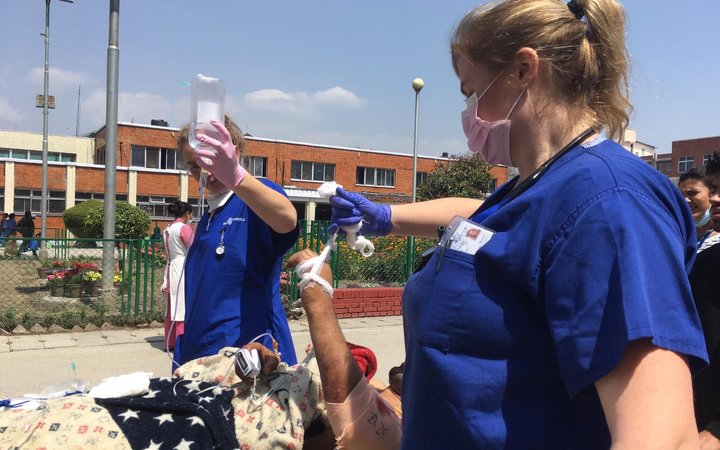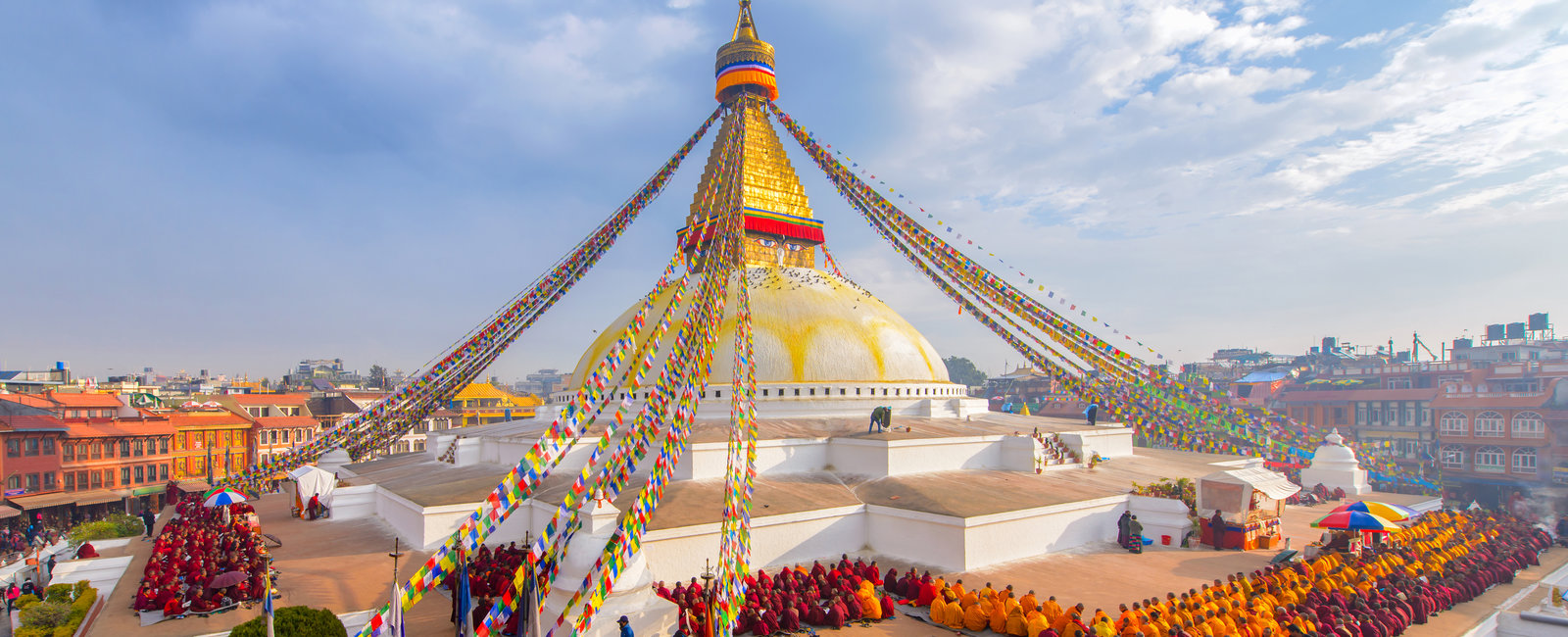King's College London 2019
 I had never visited Nepal before my elective placement in Kathmandu, but I’d been to many of the surrounding countries and had heard great things.
I had never visited Nepal before my elective placement in Kathmandu, but I’d been to many of the surrounding countries and had heard great things.
Knowing that the healthcare system in Nepal was going to be so different to the National Health Service I decided that Kathmandu was the perfect place to do my elective placement, a new country to tick off my ever-growing list and a new health care system to immerse myself into.
the hustle and bustle of the hospital only produced excitement and anticipation as to what I was going to learn over the next four weeks.
The hospital is fairly large, maybe bigger than what I expected with a good range of departments and specialities. The tour of the hospital revealed what may be seen as chaos to some eyes; there were so many people in the corridors including doctors, nurses, international and national interns and elective students, patients and visitors. However, the hustle and bustle of the hospital only produced excitement and anticipation as to what I was going to learn over the next four weeks.
 I spent the first two weeks in accident and emergency, learning from the nurses and observing their methods of practice. It was interesting to learn about the reasons behind their methods and how they had been taught. The nurses also enjoyed engaging in conversations about nursing degrees in the UK and what life is like as a nurse in the NHS.
I spent the first two weeks in accident and emergency, learning from the nurses and observing their methods of practice. It was interesting to learn about the reasons behind their methods and how they had been taught. The nurses also enjoyed engaging in conversations about nursing degrees in the UK and what life is like as a nurse in the NHS.
The nurses helped to improve my practical skills such as manual blood pressure. In a very busy and loud environment this is not the easiest of tasks unless you are an expert.
I was placed alongside student nurses who have an incredible amount of knowledge and skill and participated in doctors rounds daily. The doctors were great at teaching us about specific conditions and how to manage these. They encouraged students of all backgrounds to participate in assessments and assist in the treatment of patients.
It was very strange to see so many patients sharing one bed, particularly with all the families surrounding the bed area also. Sometimes it was hard to tell who was the patient and who was visiting.
 Hospital resources, including beds, are very limited and cannot accommodate the number of people that access the hospital. This can also be seen in staffing levels, particularly nurses.
Hospital resources, including beds, are very limited and cannot accommodate the number of people that access the hospital. This can also be seen in staffing levels, particularly nurses.
It became very normal to see family members including young children manually ventilating their loved ones, they often had no skill in doing this so I began teaching them how to ventilate safely and effectively. The language barrier often made this extremely difficult but hand gestures and actions were very successful. I found small interactions with relatives, always with a smile, went a long way.
I spent one week in the maternity department where I was able to see so many babies being born for the first time! This has been one of my goals in my medical career and is not easy to achieve as an adult nurse in the UK. I found it incredible that women gave birth with no analgesia and made no complaints. It really showed the differences in cultures and expectations between the NHS and the Nepalese health care system.
I made splints from pieces of wood and wrapped them in cotton wool and bandages.
 During my time in A&E a storm had hit some small villages on the India-Nepal border causing severe injuries and some fatalities. The most critical patients were airlifted by the army to the hospital in Kathmandu. It was incredible to see how the team prepared for this despite the lack of resources. I made splints from pieces of wood and wrapped them in cotton wool and bandages. The preparation really showed great improvisation skills; something I would be doing in wilderness medicine and not so much in the hospital when in the UK.
During my time in A&E a storm had hit some small villages on the India-Nepal border causing severe injuries and some fatalities. The most critical patients were airlifted by the army to the hospital in Kathmandu. It was incredible to see how the team prepared for this despite the lack of resources. I made splints from pieces of wood and wrapped them in cotton wool and bandages. The preparation really showed great improvisation skills; something I would be doing in wilderness medicine and not so much in the hospital when in the UK.
When the patients arrived and triage began I felt part of the team. I was placed with the nurses and doctors to treat patients and manage their injuries. We shared different ideas on wound care and how to manage catastrophic bleeds, but overall the approach to the arrival and management of mass casualties was not too dissimilar to the approach in the UK. What I found most difficult about this situation was that medication could not be administered until it had been purchased at the pharmacy by the patients’ relatives. Depending on how busy the pharmacy was and the family's financial situation, this could sometimes be a timely process.
 I also did Work the World’s Village Healthcare Week in a beautiful village in the mountains. I stayed with a wonderful family and got to experience traditional Nepalese life. This was my favourite part of the trip. At the healthcare post, I was assessing patients, assisting with health promotion and dressing a lot of wounds. This has helped me to improve my assessment skills of the not critically ill patient and how to manage conditions that I would not necessarily encounter in the UK.
I also did Work the World’s Village Healthcare Week in a beautiful village in the mountains. I stayed with a wonderful family and got to experience traditional Nepalese life. This was my favourite part of the trip. At the healthcare post, I was assessing patients, assisting with health promotion and dressing a lot of wounds. This has helped me to improve my assessment skills of the not critically ill patient and how to manage conditions that I would not necessarily encounter in the UK.
Outside of the hospital, Kathmandu is an overload on the senses with sounds, smells, colours and wonderful culture surrounding you constantly. I visited local temples and squares, ate incredible food and met many wonderful people; I now have some new friends in Nepal.
 To escape the madness of Kathmandu there are many hikes you can do whilst trying to get a glimpse of the Himalayas, although this is very weather dependant. However, if you are lucky enough, the range really is as breathtaking as people claim.
To escape the madness of Kathmandu there are many hikes you can do whilst trying to get a glimpse of the Himalayas, although this is very weather dependant. However, if you are lucky enough, the range really is as breathtaking as people claim.
The Work the World team, both in the UK and in Nepal, are amazing. The support they gave throughout the booking process and the time I spent in Nepal receives no complaints. I would recommend this opportunity to everyone. The experience was a whole load more than I expected and has given me a new love for global nursing and a new country.

.jpg)
%20Thumbnail.png)
%20SQUARE%20.png)





